Affiliated Faculty
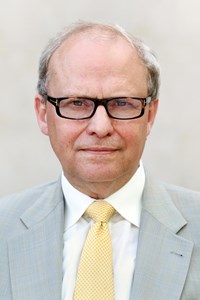
Dr. Åslund has served as an economic adviser to several governments, notably the governments of Russia (199-94) and Ukraine (1994-97). He is chairman of the Advisory Council of the Center for Social and Economic Research, Warsaw, and of the Scientific Council of the Bank of Finland Institute for Economies in Transition. He has published widely and is the author of fourteen books, most recently with Simeon Djankov, Europe’s Growth Challenge (OUP, 2017) and Ukraine: What Went Wrong and How to Fix It (2015). Other books of his are How Capitalism Was Built (CUP, 2013) and Russia’s Capitalist Revolution (2007). He has also edited sixteen books.
Previously, he worked at the Peterson Institute for International Economics, the Carnegie Endowment for International Peace, the Brookings Institution, and the Kennan Institute for Advanced Russian Studies at the Woodrow Wilson Center. He was a professor at the Stockholm School of Economics and the founding director of the Stockholm Institute of East European Economics. He served as a Swedish diplomat in Kuwait, Poland, Geneva, and Moscow. He earned his PhD from Oxford University.

In addition to being a co-author of A Better Investment Climate for Everyone (World Development Report 2005), he is co-editor of Can Russian Compete? and of Between State and Market: Mass Privatization in Transition Economies (1997). He has also authored articles on economic reform, entrepreneurship, and poverty alleviation in The American Political Science Review, Economics and Politics, Journal of Comparative Economics, IMF Staff Papers, Economics of Transition, The World Bank Research Observer, International Studies Review, The European Journal of Political Economy, Journal of International Law and Politics, The National Interest, and Survival.
He is the recipient of fellowships from the Social Sciences Research Council, the Andrew Mellon Foundation, and from the National Science Foundation. He has also served as occasional consultant to the World Bank Group, the Asian Development Bank, the United Nations Development Program, and other international organizations. From 1996 to 1999, he was as a private sector development specialist at the World Bank, where he worked on the privatization and restructuring of public enterprises in Eastern Europe and the former Soviet Union, and on the recovery of financial systems following economic crises in East Asia and Latin America. He received his Ph.D. and M.A. degrees from Harvard University where he was a National Science Foundation Fellow, and his B.A. from the University of California, Irvine.
More information can be found on his website here.
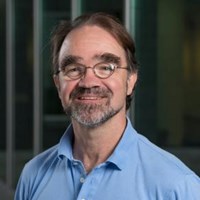
He has taught at the Central European University (1991-2010), Stanford University (1990-2000), the Stockholm School of Economics (1997-2001), and the University of Vienna (1991); and he has been an affiliated researcher with the Institute for International Studies at Stanford (1995-97), the Stockholm Institute of Transition Economics (1997-2001), the Institute for the Study of Labor (IZA, since 1999), the Institute of Economics of the Hungarian Academy of Sciences (since 2007), the Center for Advanced Studies in Vienna (1991-92) and the Brookings Institution (1987).
Professor Earle’s research focuses on the firm-level and worker-level effects of public policies, particularly under conditions of structural and institutional change, and he has written widely on labor markets, political economy, firm performance, privatization and corporate governance, entrepreneurship, industry dynamics, organizational practices, and the consequences of restructuring for employees. His approach is comparative, institutional, and interdisciplinary, and much of his work develops and analyzes large micro-databases for multiple economies in Central and Eastern Europe.
Publications include more than 50 articles in refereed scholarly journals such as the Journal of Political Economy, Economic Journal, Review of Economics and Statistics, Journal of Labor Economics, Labour Economics, Economic Development and Cultural Change, Journal of Comparative Economics, Journal of Economic Behavior and Organization, Research in Labor Economics, American Political Science Review, Academy of Management Journal, European Economic Review, Lancet, and Corporate Governance. He has also published four books and numerous chapters in edited volumes, as well as articles and reports for policymakers and broader audiences.
Professor Earle’s policy experience includes stints at the Council of Economic Advisers, the Congressional Budget Office, and the U.S. Geological Survey in Washington, D.C., and policy advising and consulting with the World Bank, OECD, USAID, and the Russian-European Center for Economic Policy. He is also Director of the Labor Project at the Central European University and president-elect of the Association for Comparative Economic Studies.
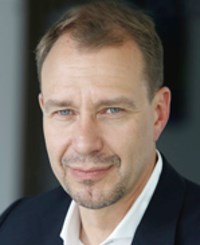
In 30 internationally published research papers, he has analyzed problems of institutions and organizations, in particular, HR management, the design of incentive systems, hierarchical and team organizations, as well as gender issues in organizations. He collaborates with organizations in field experiments (RCTs) in order to test theories and to investigate how increasing efficiency can go along with better pay for employees and higher job satisfaction.
He is a Fellow of CEPR and IZA, one of the founding members of the committee for organizational economics in the German Economic Association, and a member of the Scientific Advisory Board of Sciences Po in Paris. He is also Co-Managing Editor of Economics of Transition.

She works on topics related to how individuals acquire and use their skills, particularly on science and innovation, immigration, and gender issues. Much of her work is focused on the behavior of high-skilled "knowledge" workers - scientists and engineers.
She is an Affiliated Researcher at the Stockholm Institute of Transition Economics (SITE) at the Stockholm School of Economics and a fellow of the Center for International Development (CID) and the Institute for Quantitative Social Sciences (IQSS) at Harvard University.
More information can be found on her website here.

Her current work can be grouped into two broad areas: First, she explores the effects of personal values, organizational culture, and management practices on organizational outcomes, drawing on both experimental data and large-scale panel data on social enterprises globally and primary schools in the Democratic Republic of Congo. Second, she collaborates with a wide-ranging set of companies and social enterprises in Europe to test (at an unusually large scale) and evaluate the effects of behaviourally inspired new products and services that are designed to address specific needs of poor households in developed and emerging market economies. She is co-founder of the Oksigen Lab, a non-profit accelerator and a research lab for soci(et)al entrepreneurship, and i-propeller, a boutique consultancy on social business innovation, both based in Brussels.
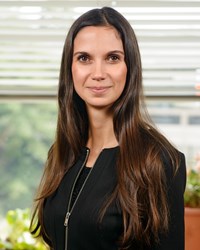
Catarina’s current research is on cartels and collusion, with the view to understand the functioning of cartels so as to design optimal competition policies to detect and deter collusive practices. Much of her work focuses on recidivism, banking infringements, cartel damages, and managerial incentives.
She has presented her work at the top field Conferences and she was invited as an expert speaker at the 2018 OECD Roundtable on Collusion (see more here). She also has some policy experience from internships at the Italian Competition Authority (AGCM) and the Portuguese water and residuals regulator (IRAR).
More information can be found on her website: here.
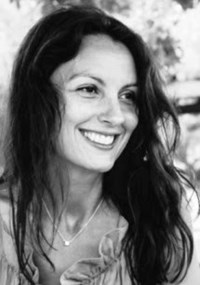
Andreea was an Assistant Professor at the Department of Economics at Uppsala University. During the last five years she was a regular visiting scholar at Columbia University.
Andreea's research focuses on topics such as health, education and labor economics. She is also interested in studying topics at the intersection between health or education economics and political economy, especially corruption.
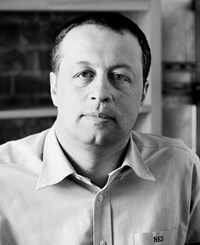
In addition to his academic work, Sonin writes a blog on Russian political and economic issues and a fortnightly column for the Russian-language newspaper Vedomosti, and contributed to all major Russian media. In 2012, he was an economic advisor to the presidential campaign of Mikhail Prokhorov.
Sonin earned an MSc and PhD in mathematics from Moscow State University and an MA in economics at Moscow’s New Economic School, was a postdoctoral fellow at Harvard University’s Davis Center for Russian and Eurasian Studies, served on the faculty of the New Economic School (NES) and Higher School of Economics (HSE) in Moscow, and was also a member of the Institute for Advanced Study in Princeton. As an NES and then HSE vice-rector, Sonin was a founder of the HSE-NES joint undergraduate program, and overseen HSE international recruitment effort in 15 disciplines. Now he is affiliated with HSE and Stockholm Institute of Transition Economics as a visiting professor and adviser.
More information can be found on his website here.